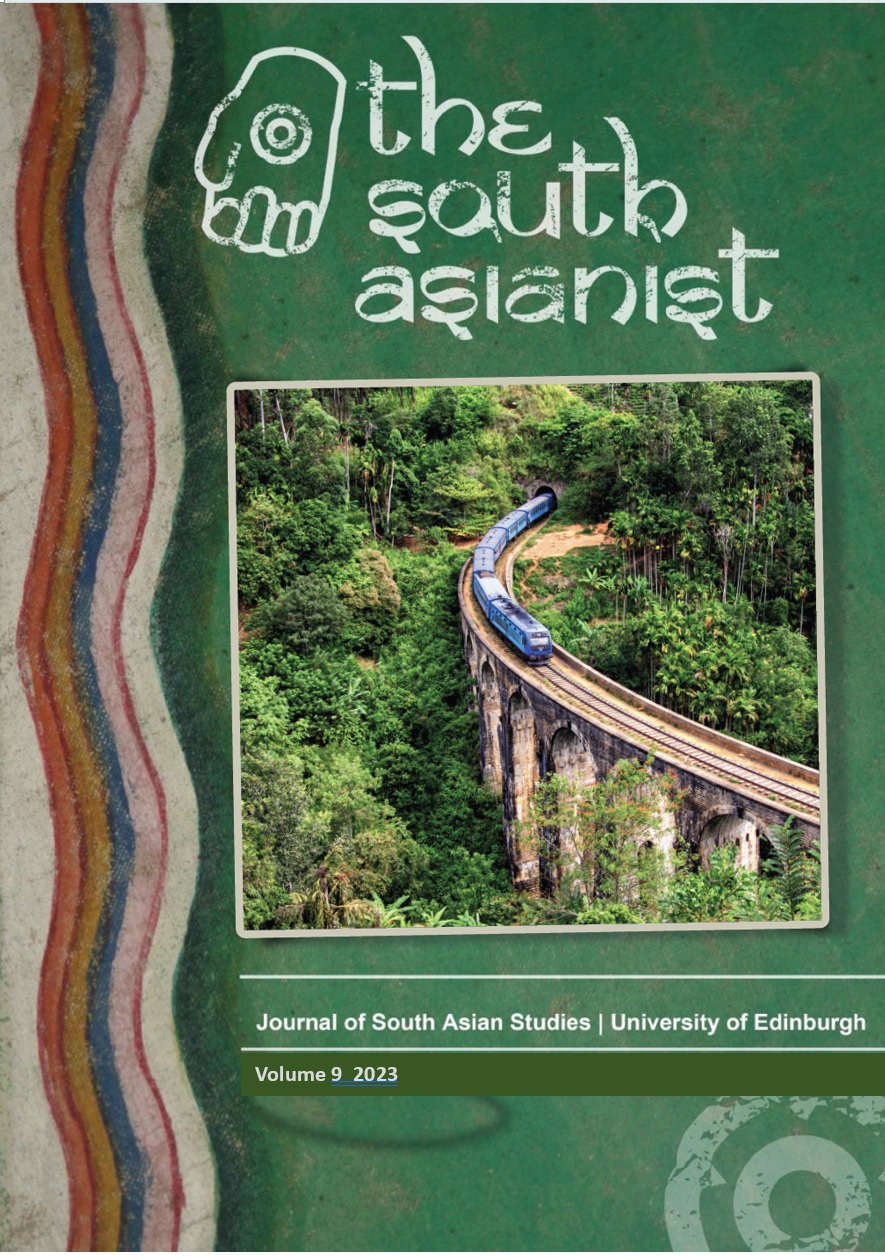Empowering or burdening women?
Assessing precariousness of vocationally trained women in Nepal
Keywords:
Precariousness, Gender-sterotyped occupations, Closure, Vocational Training, EmpowermentAbstract
In many developing countries like Nepal, women are vocationally trained in ‘women-friendly’ professions, encouraging them to enter the labour market. Amidst discussions concerning the role of gender-stereotyped Vocational Training (VT) programmes in empowering women, this research makes a qualitative study of the training and post-training experiences of women graduating from two ‘women-friendly’ VT programs – tailoring and beautician. Data obtained from interviewing 12 beauticians and 7 tailors have been analysed to assess the precariousness associated with these professions and also women’s sense of empowerment through the World Bank Empowerment Framework 2005.
Discussions suggest that women are often nudged into low-income occupations owing to their gender roles, lower attainment of formal education and limited access to finances. In addition to their domestic and care work, women are forced to sell cheap labour and work longer hours in a highly competitive market, which signifies the extremity of precariousness they encounter.
Although VT programmes give women some agency through assets like income (albeit low), skill, information and social capital, the translation of this agency to empowerment remains questionable. Despite being professionals, women are still not the ones making decisions for their future and thus have limited social and political power. Even institutions designed to empower women leave them out of their board rooms – proving women quite powerless even while walking the recommended paths of ‘empowerment’.
This research concludes that gender-stereotyped VT programmes in Nepal exacerbate gender differences, burden women with precariousness and exclude them from economic, social and political capital-earning opportunities.
References
Bhadra, C. & Shah, M. T. (2007) NEPAL: Country Gender Profile
Bhadra, C., Thapaliya, H., Ghimire, P. & Shrestha, N. (2003) Study the Effectiveness of Programmes Targeted to Women.
C. Young, M. (2010) Gender Differences in Precarious Work Settings. Relations industrielles (Québec, Québec), 65, 74-97.
Chakravarty, S., Lundberg, M., Nikolov, P. & Zenker, J. (2019) Vocational training programs and youth labor market outcomes: Evidence from Nepal. Journal of development economics, 136, 71-110.
Creswell, J. W. (2014) A Concise Introduction to Mixed Methods Research, SAGE Publications.
Cross, J. (2010) Neoliberalism as unexceptional: Economic zones and the everyday precariousness of working life in South India. Critique of Anthropology, 30, 355-373.
Esping-Andersen, G. (1990) The three worlds of welfare capitalism, Polity.
ILO (2018) RE: Nepal launches contribution-based Social Security Scheme.
ILO (2021) RE: Employment promotion in Nepal (ILO in Nepal).
Israel, M. (2015) Research Ethics and Integrity for Social Scientists: Beyond Regulatory Compliance. 2 ed. London.
Kalleberg, A. L. & Vallas, S. P. (2017) Probing Precarious Work: Theory, Research, and Politics. In: ARNE, L. K., STEVEN, P. V., ARNE, L. K. & STEVEN, P. V. (eds.) Precarious Work. Emerald Publishing Limited.
Kusenbach, M. (2003) Street phenomenology: The go-along as ethnographic research tool. Ethnography, 4, 455-485.
Kvale, S. (2006) Dominance Through Interviews and Dialogues. Qualitative Inquiry - QUAL INQ, 12, 480-500.
Lamichhane, R. H. (2014) Hindering Factors of Female Participation in TVET in Nepal. Technical and Vocational Education and Training Development Journal, 1, 12 - 18.
Macdonald, K. M. (1985) Social Closure and Occupational Registration. Sociology, 19, 541-556.
Mason, J. (2018) Qualitative Researching, SAGE Publications.
Messerli, S. (2012) Challenges of empowering women for the labour market Women in Nepal: empowered socially but not economically. Technical and Vocational Education and Training Development Journal, 1, 42 - 45.
Mills, S. (1998) Post-colonial Feminist Theory. In: JACKSON, S. & JONES, J. (eds.) Contemporary Feminist Theories. Edinburgh University Press.
Murphy, R. (1983) The Struggle for Scholarly Recognition: The Development of the Closure Problematic in Sociology. Theory and Society, 12, 631-658.
Murphy, R. (1984) The Structure of Closure: A Critique and Development of the Theories of Weber, Collins, and Parkin. The British journal of sociology, 35, 547-567.
Murphy, R. (1986) Weberian Closure Theory: A Contribution to the Ongoing Assessment. The British Journal of Sociology, 37, 21-41.
NPC (2018) Women in Nepal Statistical Highlights. Central Bureau of Statistics.
O'Reilly, K. (2009) Key Concepts in Ethnography, SAGE Publications.
Ozkazanc-Pan, B. (2012) Postcolonial feminist research: Challenges and complexities. Equality, Diversity and Inclusion: An International Journal, 31.
Pernecky, T. (2016) Epistemology and Metaphysics for Qualitative Research. 55 City Road, London.
Poudel, U. (2018) Minimum monthly wage for workers set at Rs 13,450. The Himalayan Times
Rijal, S. (2018) Female Ownership of Fixed Assets in Nepal: A Regional Perspective. The Third Pole: Journal of Geography Education, 17, 73.
Savage, S. & Brennan, S. (2011) Afghanistan technical and vocational education training (TVET) providers inventory.
Shah, I., Ajmal, M. & Rahman, F. (2010) Structure of technical education and vocational training in Pakistan. Journal of Technical Education and Training.
Shields, S. (2008) Gender: An Intersectionality Perspective. Sex Roles, 59, 301-311.
Standing, G. (2011a) The Precariat: The New Dangerous Class. 6-7.
Standing, G. (2011b) The Precariat: The New Dangerous Class.
Standing, G. (2015) The Precariat and Class Struggle. RCCS Annual Review.
UNESCO (2016) Nepal: Education and Literacy.
Van Oort, M. (2015) Making the neoliberal precariat: Two faces of job searching in Minneapolis. Ethnography, 16, 74-94.
Vollmann, W. (2013) The Challenge of Technical and Vocational Training and Education in Rural Areas: the Case of South-Asia. Journal of Education and Research, 2.
Witz, A. (1990) Patriarchy and Professions: The Gendered Politics of Occupational Closure. Sociology, 24, 675-690.
Wood, G. & Gough, I. (2006) A Comparative Welfare Regime Approach to Global Social Policy. World Development, 34, 1696-1712.
World Bank, W. (2007a) Skill development in India : the vocational education and training system.
World Bank, W. (2007b) Learning for Job Opportunities: An Assessment of the Vocational Education and Training in Bangladesh.
Downloads
Published
How to Cite
Issue
Section
License

This is an Open Access journal. All material is licensed under a Creative Commons Attribution-NonCommercial-ShareAlike 4.0 International (CC BY-NC-SA 4.0) licence, unless otherwise stated.
Please read our Open Access, Copyright and Permissions policies for more information.





